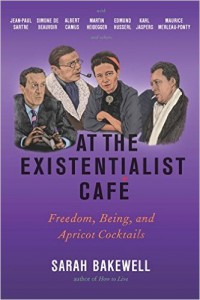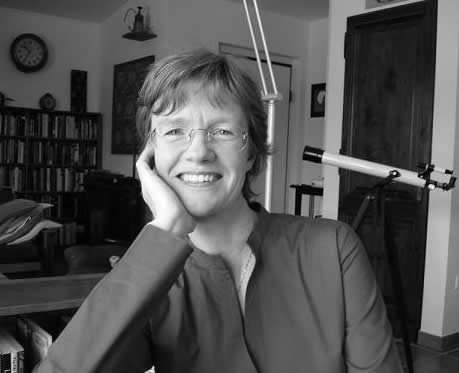 I absolutely loved Sarah Bakewell’s book about philosopher and essayist (and just general hero of life) Michel de Montaigne, How to Live: A Life of Montaigne in One Question and Twenty Attempts at An Answer. It’s a brilliant account of Montaigne’s philosophy, and Bakewell did an exemplary job of making a book about a 16th century philosopher feel modern, and compulsively readable. (To be fair to Montaigne though, he’s a pretty awesome dude.)
I absolutely loved Sarah Bakewell’s book about philosopher and essayist (and just general hero of life) Michel de Montaigne, How to Live: A Life of Montaigne in One Question and Twenty Attempts at An Answer. It’s a brilliant account of Montaigne’s philosophy, and Bakewell did an exemplary job of making a book about a 16th century philosopher feel modern, and compulsively readable. (To be fair to Montaigne though, he’s a pretty awesome dude.)
So when I saw that she has a new book out and that she wants to take us on a trip to Europe in the mid 20th century to meet the philosophers and writers at the forefront of Existentialism, I was standing at the door with my coat on and my bags packed (metaphorically speaking) before the galley hit my inbox.
Before setting out with Bakewell on this adventure, my knowledge of the Existentialists was very limited. I’d read The Stranger by Albert Camus. I was interested enough (in theory) about Simone de Beauvoir and Jean-Paul Sartre that I’d visited their graves while I was in Paris, even though I’ve never read their work. But my knowledge of Existentialism was not very deep at all, and I relished the opportunity to dive into a new (to me) philosophy and history.
At The Existentialist Café: Freedom, Being, and Apricot Cocktails tells the history of Existentialism through the writers and thinkers that shaped and evolved the movement: Sartre, Beauvoir, Camus, Merleau-Ponty, and more; as well as the philosophers who came before them and helped to lay the groundwork: Heidegger, Husserl, Kierkegaard, etc. As the title suggests, the history is presented as if we’re at a café in Paris, sipping our coffee and wearing black turtlenecks as these great thinkers float in and out of the central story, each taking over the conversation for a while as the plot rotates around the historical progress of the movement.
Here are the two main reasons why this book is so interesting, and so fantastic:
1. You’ll be introduced (or re-introduced) to a variety of philosophers and interesting personalities. Some might feel like kindred spirits, expressing ideas that still feel true and right for our lives today. Others may have moments of interest contained within an overarching approach to life that we drastically take issue with (we’re looking at you, Heidegger). My copy is so filled with highlighting that I’m not going to attempt to include my favorites – I think it’s just something you have to dive into and discover which philosophical bits take flight in your mind.
2. One of the most impressive things about At The Existentialist Café is how it presents the evolution of existentialism in relation to world events happening in conjunction. The main story starts just after the first World War, an experience that shaped the thoughts and lives of everyone directly or indirectly impacted. We see how the both the ideas and questions these philosophers are grappling with — and their answers to them — are shaped over time by both World Wars and the rise of Communism and unrest in the 1950s and 60s. It’s absolutely fascinating to see the shifts and turns in their focus and ideas as they tackle the issues of the world around them.
“Sartre’s big question in the mid 1940s was: given that we are free, how can we use our freedom well in such challenging times? In his essay ‘The End of the War’, written just after Hiroshima and published in October 1945 — the same month as the lecture — he extorted his readers to decide what kind of world they wanted, and make it happen. From now on, he wrote, we must always take into account our knowledge that we can destroy ourselves at will, with all our history and perhaps life on earth itself. Nothing stops us but our own free choosing. If we want to survive, we have to decide to live.”
Sarah Bakewell presents a lively, readable history of the existentialists, and I finished the book convinced that the questions central to their philosophy are just as relevant to our lives today.
“They asked big questions about what it means to live an authentic, fully human life, thrown into a world with many other humans also trying to live. They tackled questions about nuclear war, about how we occupy the environment, about violence, and about the difficulty of managing international relations in dangerous times. Many of them longed to change the world, and wondered what sacrifices we might or might not make for such an aim. Atheist existentialists asked how we can live meaningfully in the absence of God. They all wrote about anxiety and the experience of being overwhelmed by choice — a feeling that has become ever more intense in the relatively prosperous parts of the twenty-first-century world, even while real-world choices have shut down alarmingly for some of us. They worried about suffering, inequality and exploitation, and wondered whether anything could be done about those evils. As part of all these questions, they asked what individuals could do, and what they themselves had to offer. […]
Their philosophies remain of interest, not because they are right or wrong, but because they concern life, and because they take on the two biggest human questions: what are we? and what should we do?”
Highly recommended for those who are interested in philosophy, and those who like to chew over big questions and ideas.
//
Add this book on GoodReads. Buy a Copy from an Independent Bookstore.
FTC disclosure: I received a review copy of this book from the publisher.

This is SO not in my wheelhouse. And yet, it’s a topic/topics I feel like I want to and should know more about. You make it sound fantastic. I was SO close. Then…448 pages. Doom. I would have taken a shot for under 330, but 448 may be the death knell. I’m weird that way. :) I would try audio, but I’m guessing I would tune out and miss most of it. Damn it.
I’m not sure the exact length in print since I had a digital galley, but the book itself ended at 73% on my reader – the rest of the pages were tons of pages of notes and sources. So if its 73% of 448, that’s actually only 327! :)
Sneaky, Emily, very sneaky. ;) I’ll see if the library has it.
Ooh this sounds really good! I find I have a love-hate relationship with the existentialists but no matter what they are always interesting!
They really are! I especially loved what a good job Sarah Bakewell did at explaining how the changes going on in the world around them shaped their thinking – very fascinating!!